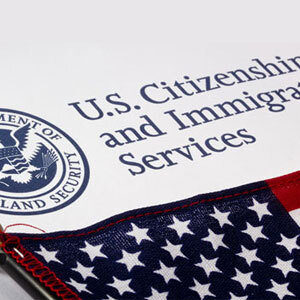
If you're a U visa applicant, advocate, or simply curious about the U visa, this article will clarify key aspects you need to know—such as the validity and extension of a U visa in the United States, and its profound impact on the lives of vulnerable individuals. Discover how the U visa:
- Provides non-citizen victims a break from the shadows of crime.
- Encourages collaboration between law enforcement and survivors to combat injustice and seek resolution.
- Offers the gift of temporary relief, work opportunities, and the chance to build a safer future.
How Long Is a U Visa Valid? Can It Be Extended or Converted to Permanent Residency?
When U nonimmigrant status is granted, it is initially valid for four years. U visa holders may apply for an extension if their initial period of admission was less than four years. U visa holders may also apply to adjust their status to lawful permanent residency (green card) after maintaining U visa status for at least three years and residing continuously in the United States.What Are the Benefits and Protections of a U Visa?
U visa recipients receive several key protections and benefits, including:
- Legal status for up to four years
- Work authorization
- Derivative benefits for eligible family members
- Eligibility to apply for lawful permanent residency after three years
How Is a U Visa Different from a T Visa?
While both visas support victims of crime, the U visa differs from the T visa in significant ways. U visa applicants must show that they suffered harm and were helpful to a law enforcement agency. Unlike T visa applicants, U visa applicants are not required to prove they experienced physical or mental abuse.
What Are the Steps in the U Visa Application Process?
The U visa application process is complex and involves several important steps, including:
- Cooperating with law enforcement to obtain victim certification.
- Requesting certification from a certifying agency, which decides whether to sign Form I-918B.
- Submitting the U visa petition to USCIS, including the signed Form I-918B.
- Waiting for USCIS review, which may include work authorization if approved.
- Responding to Requests for Evidence (RFEs) if needed or waiting on the waitlist if U visas are unavailable.
- Awaiting visa issuance upon approval.
How Does a U Visa Holder Apply for Lawful Permanent Residency?
U visa holders may apply for lawful permanent residency by submitting Form I-485 (Application to Register Permanent Residence or Adjust Status) to USCIS, along with Form I-693 (Report of Medical Examination and Vaccination Record). Notably, individuals who are in removal proceedings or have a final order of removal may still be eligible to apply for a U visa.What Is a “Waiver of Inadmissibility”? How Do I Apply?
A waiver may be granted at the discretion of the Department of Homeland Security through USCIS for nearly all grounds of inadmissibility—except for certain serious criminal offenses.
What If My Application Is Denied?
If your U visa application is denied, you may consider filing an appeal or submitting a new application that addresses previous issues. In some cases, you may need to wait until additional U visas become available.Are There Advocacy Groups or Legal Services That Help U Visa Applicants?
Yes. Advocacy groups such as the Office for Civil Rights and Civil Liberties (CRCL) help individuals file civil rights complaints. Additionally, many law firms specialize in helping clients navigate the U visa process.
For more information on U visa validity and extensions in the U.S., your best next step is to schedule an initial consultation. Call (305) 924-1133 today to get the legal answers and support you need.
More information:

Call Us Now To Get Your Case Reviewed
(305) 924-1133